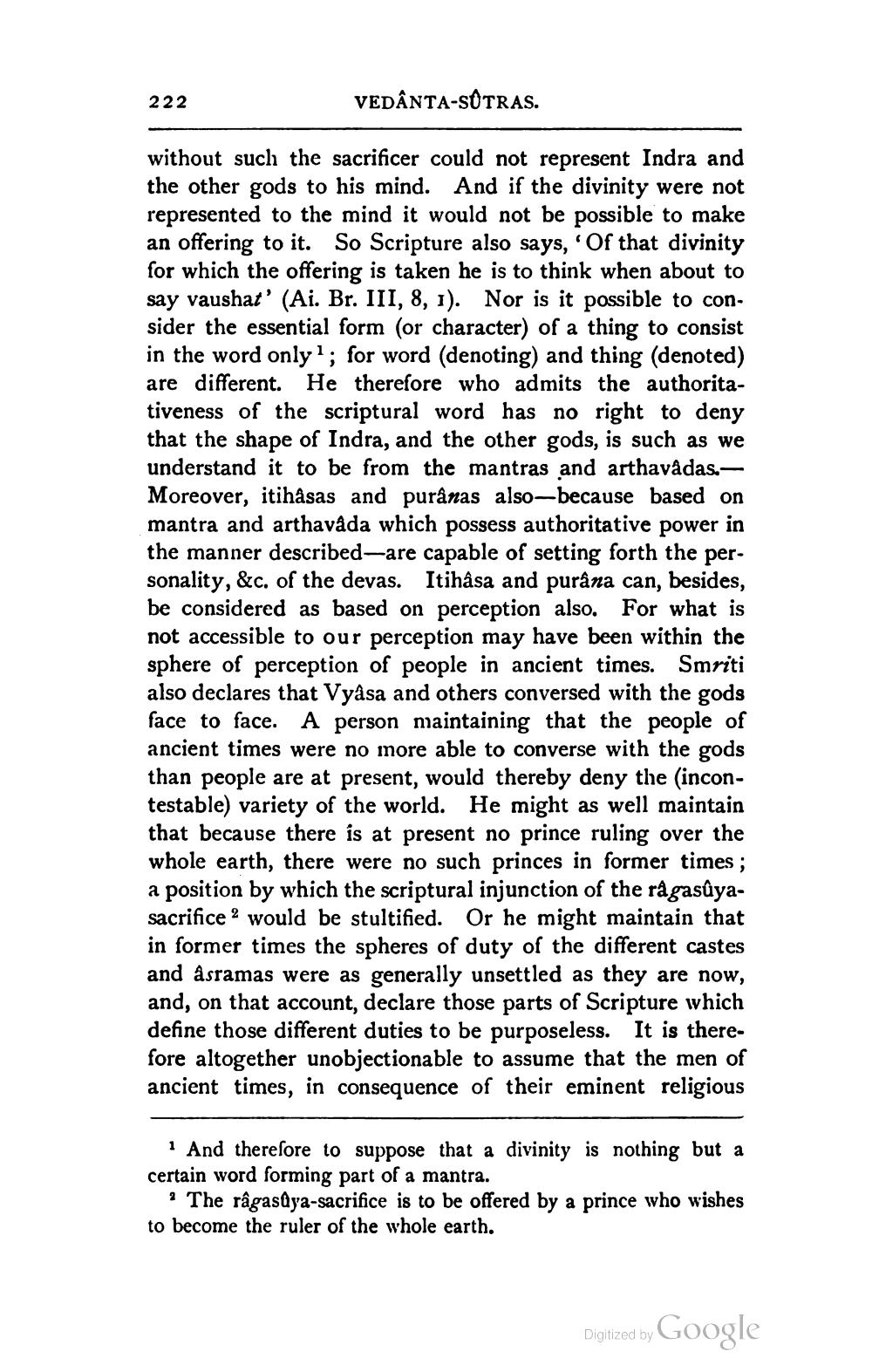________________
222
VEDÂNTA-SOTRAS.
without such the sacrificer could not represent Indra and the other gods to his mind. And if the divinity were not represented to the mind it would not be possible to make an offering to it. So Scripture also says, 'Of that divinity for which the offering is taken he is to think when about to say vaushat' (Ai. Br. III, 8, 1). Nor is it possible to consider the essential form (or character) of a thing to consist in the word only 1; for word (denoting) and thing (denoted) are different. He therefore who admits the authoritativeness of the scriptural word has no right to deny that the shape of Indra, and the other gods, is such as we understand it to be from the mantras and arthavadas.Moreover, itihåsas and puranas also-because based on mantra and arthavâda which possess authoritative power in the manner described-are capable of setting forth the personality, &c. of the devas. Itihasa and purâna can, besides, be considered as based on perception also. For what is not accessible to our perception may have been within the sphere of perception of people in ancient times. Smriti also declares that Vyasa and others conversed with the gods face to face. A person maintaining that the people of ancient times were no more able to converse with the gods than people are at present, would thereby deny the incontestable) variety of the world. He might as well maintain that because there is at present no prince ruling over the whole earth, there were no such princes in former times; a position by which the scriptural injunction of the ragasûyasacrifice ? would be stultified. Or he might maintain that in former times the spheres of duty of the different castes and asramas were as generally unsettled as they are now, and, on that account, declare those parts of Scripture which define those different duties to be purposeless. It is therefore altogether unobjectionable to assume that the men of ancient times, in consequence of their eminent religious
And therefore to suppose that a divinity is nothing but a certain word forming part of a mantra.
· The râgas@ya-sacrifice is to be offered by a prince who wishes to become the ruler of the whole earth.
Digitized by
Digized by Google




